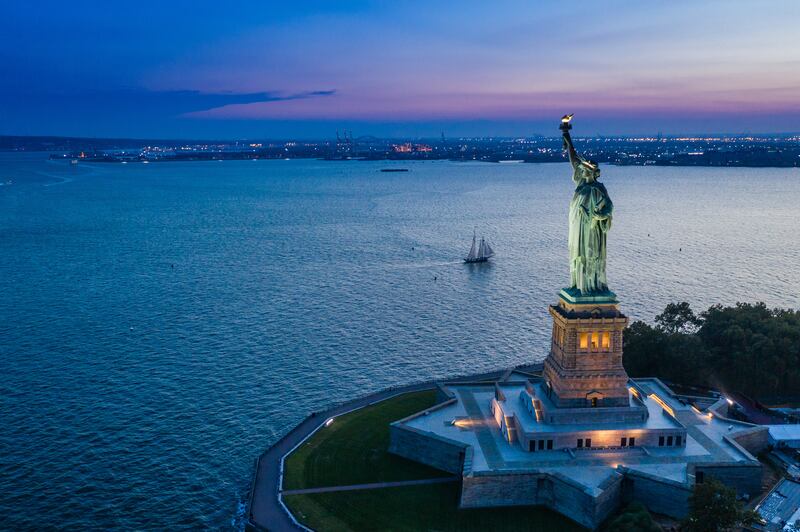Add the District of Columbia to the growing list of states and cities that won’t be marking the Monday’s 527th anniversary of Christopher Columbus stepping foot in the new world.
On Wednesday, the nation’s capital passed emergency legislation renaming Monday’s holiday “Indigenous Peoples’ Day,” and it’s in good company with at least seven states and more than 130 cities making the switch.
The trend is not without merit — historians have long known the Italian explorer was not the benevolent hero portrayed in American folklore. Many Native Americans and tribal nations see his conquest as the first in a long history of oppression, injustice and suffering.
Enclaves of Little Italys, on the other hand, are loath to let go of Columbus’ historical significance. And public employees likely enjoy the day off no matter what it’s called.
The significance here is not so much the name of a federal holiday in October; it’s that the country is recognizing and grappling with its tension-rich heritage. These intersections give an opportunity to take in expanded vistas and contemplate a larger canvas on which is painted the story of us. Erasing wholesale any part of that heritage — good or bad — would leave a fragmented America without a solid foundation on which to keep building.
So it’s concerning to see flickers of trends that would do just that. Primarily, an internet-fueled “cancel culture” threatens to expunge from the public record all manner of dissenting voices, complex characters and unpopular truths.
It’s already been a blight on college campuses, where the foundational freedom of expression has yielded to angry mobs storming classrooms or shouting down guest speakers. In the public square, anyone can find themselves on the wrong side of a tweet, a photo or a vote if enough people on the other side disagree. Decades-old impropriety is dug up afresh and unfairly weighed against a mountain of good behavior.
In the public square, anyone can find themselves on the wrong side of a tweet, a photo or a vote if enough people on the other side disagree. ... Repentance and forgiveness are becoming endangered principles.
This culture can even sterilize the brightest of interactions — just ask Ellen DeGeneres, who faced fire and fury for sitting next to former President George W. Bush at a football game last week. Her justification — “I’m friends with a lot of people who don’t share the same beliefs that I have” — was chewed up and spit out by hordes of digital vigilantes. Thankfully, she used it as a teaching moment for a nation that sorely needed one.
The irony of it all is the failure of the digital age to live up to its promise of connecting and uniting the world. Instead, too many of its adherents are the first to cast stones at every hint of nonconformity.
And America shouldn’t tolerate it. Just as bringing one’s whole self to the public square is vital for communities, embracing the complete picture of the United States is paramount for its progression. Don’t cancel the Founders because some owned slaves — learn from their lives and study their successes. Don’t cancel immigration because it diversifies — embrace humanity and acknowledge the need for security.
The story of America is that of a fledgling nation repeatedly stumbling on the path toward its ideals. At every juncture Americans should be willing to engage in the wrestle and embrace the whole picture — the good and bad, the easy and difficult — of what makes America forever striving to be the land of the free and home of the brave.

